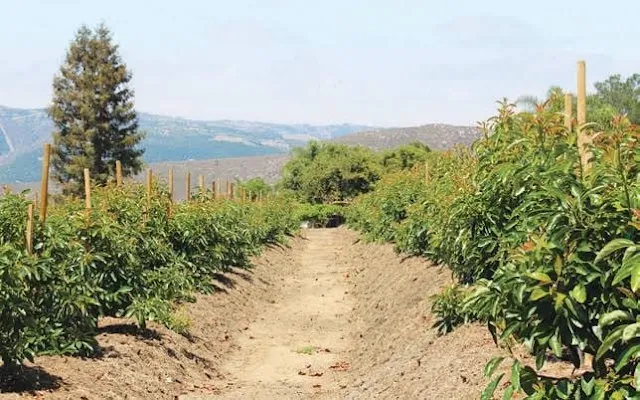The future of avocado farming as a business in Kenya lies squarely
on the ability of Kenyan farmers to produce a consistent supply of quality
fruits. That statement sounds simple, but take this to the bank; if we mess up
on quality, it will only be a matter of days before we are thrown out of the
international market and that’s the only market sustaining this business.
One of the quality aspects that avocado farmers in Kenya must be
keen on is to ensure that they harvest their fruits only when they are mature. As
a farmer, when you harvest and sell immature fruits, you not only get paid peanuts
but also put the reputation of our products at stake. Immature fruits are a
turnoff to importers, retailers and consumers of Kenyan avocados. A consistent
supply of such fruits may lead importers in the international market to develop
a dislike for Kenyan avocado or probably anything Kenya.
 |
| Suspected immature avocados harvested for export |
This means continued export of these fruits will make us not only
loose on our current market but also loose prospective ones and in the end, all
our efforts turn to waste.
How to tell that your avocados are mature
It is a bit difficult to determine if an avocado fruit is truly
mature by just looking at it. But here are some indicators that will help you:
- The fruit loses its glossiness (the shiny appearance) and becomes duller.
- The seed coat becomes thin and brown instead of fleshy and white.
- The stem end of the fruit turns yellow.
- The stem end (the stalk) is not too firmly attached. However, take note that avocados with stalks that are too loosely attached are also too mature for export.
- Immature avocados have a specific weight (this is a unit of comparing the actual weight of an avocado to its volume) of 1.02-0.95g/cm3. While those that mature have a specific weight of 0.95- 0.85g/cm3. There is a special machine for measuring this.
- Immature avocados sink or float below the surface of water while mature avocados float on top of water
Determination of Dry Matter/ Oil content in avocados
This is the widely accepted scientific method of determining
mature fruits. This can be done through the microwave oven method. The main
disadvantage is that it is very tedious and time consuming. One person can
hardly test 20 fruits in a day. This is the main method used by avocado exporters
in Kenya.
 |
| Machine used to determine maturity of avocados through measuring the dry matter content |
For many exporters in the country, the urgency to harvest and
export once orders are secured, your guess is as good as mine on inaccuracy of
these tests. That leaves the farmers with the greatest responsibility of
ensuring that harvested fruits are mature.
Ray of Hope for the avocado farming business in Kenya
An American company Helix Instruments has developed a real time field
friendly portable gadget that uses near infrared analysis to test maturity of
avocado fruits. It is fast, easy to use
and gives results in about 12 seconds. It is most suitable for the avocado
exporters as they can test the fruits right at the farm.
Legislation on Avocado Maturity in Kenya
On 24th, July 1925 California enacted a legislation on
Avocado standards which permitted sale of avocados with a minimum oil content
of 8%. Since it’s cumbersome to measure oil content, the Dry Matter which is
inversely proportional to oil content is often measured as a maturity index.
Muranga Kenya: 95 years since the California Avocado
Standardization Bill, Muranga County Government is yet to enact a similar
legislation in a couple of weeks. We hope this will serve as a deterrent to
harvesting and sale of immature fruits. Meanwhile, it is in the best interest
of our business as avocado farmers in Kenya to ensure that the exporters and
other middle-men do not lure us into destroying the future of the very business
we are working so hard to build.
We, at richfarm Kenya consistently work with farmers to ensure the best farming practices are used. We have also compiled the Hass avocado farming guide below and put it in PDF so that you can keep it and read from your phone. You can download a free from our Farmer's Resources page.






















